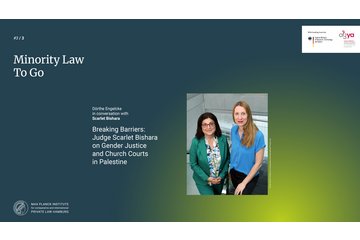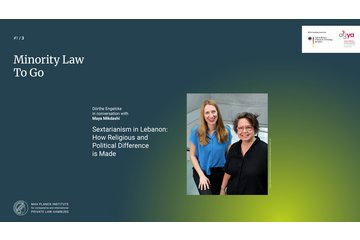In this episode of Minority Law To Go, host Dörthe Engelcke speaks with Gianluca Parolin, professor of law at the Institute for the Study of Muslim Civilizations at Aga Khan University in London. Together, they explore the struggle of Egyptian Christians to gain autonomy in inheritance law, the promises and limits of Article 3 of the 2012 Constitution, and the landmark 2024 Court of Cassation ruling that highlights the boundaries of legal pluralism. Gianluca explains how the jurisprudence of Egypt’s highest courts – and the use of “public policy” – continue to shape the rights of Christian Egyptians. The conversation also considers questions of gender equality, inter-religious relations, and the long history of politicizing minority rights, offering sharp insights into the complex intersections of law, religion, and state power in Egypt today.
Minority Law To Go is a podcast mini-series about the debates at the crossroads of law, religion, gender, and state power in the Arab region. Hosted by Dörthe Engelcke, AGYA member and acting head of the Centre of Expertise for the Law of Arab and Islamic Countries at the Max Planck Institute for Comparative and International Private Law, the series brings leading scholars and legal practitioners into conversation. Together, they explore the lived realities of legal pluralism and the political contexts that shape them. The series grew out of the conference “Minority Law in Arab States – Governing Religious Diversity”, organized by the Arab-German Young Academy of Sciences and Humanities (AGYA) together with the Centre of Expertise for the Law of Arab and Islamic Countries at the Max Planck Institute for Comparative and International Private Law. The conference took place at the MPI in July 2025.
This podcast is funded by the Arab-German Young Academy of Sciences and Humanities (AGYA). The Academy stands for research across disciplines and countries. AGYA draws on financial support of the German Federal Ministry of Research, Technology and Space (BMFTR) grant 01DL20003. The authors remain solely responsible for the content and recommendations provided in this publication, which do not reflect the positions of AGYA or any of its funding partners.







